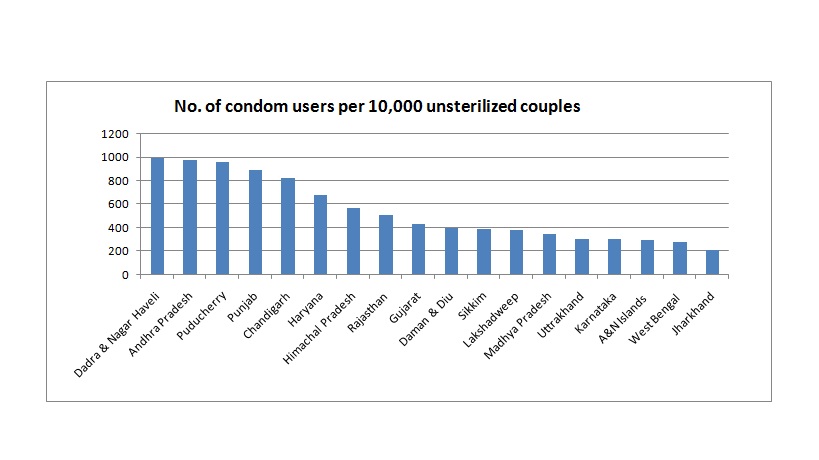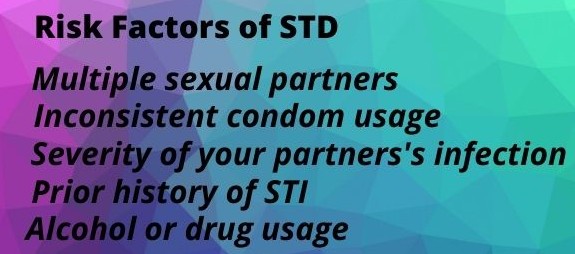Misconceptions, embarrassment and a lack of awareness about condoms are leading to a rise in STIs.
India has seen a rise in cases of Sexually Transmitted Infections (STIs) mainly due to continued reluctance in using male condoms and lack of awareness about female condoms, say doctors.
Dr. Nupur, a Gynecologist at IBS Hospital, said, “A lot of men do not prefer using condoms as it reduces the urge and pleasure,” and there is a lack of awareness about the existence of female condoms. These days more young people indulge in sexual activities and sex still being considered a taboo they feel scared to go to the pharmacies and buy condoms.
Health statistics according to a Med India report state that 340 million new cases of curable STIs – gonorrhea, chlamydia, syphilis – are recorded every year in the world. In 2016-2017, the National AIDS Control Society (NACO) covered 3.94 million cases of STIs and reproductive tract infections (RTIs) in India.
The National Health Portal (NHP) India shows that six percent of the adult population in India has one or more STIs. It amounts to 30-35 million cases every year. Most new cases are prevalent in young adults and adolescents who are newly active and might not know how to identify the symptoms.
Overall condom usage in India remains low. 70 percent of male adolescents between the age of 15-19 and 78 percent of young males between the age of 20-24 did not use a contraceptive with their last sexual partner – according to the National Family Health Survey – 4 (NFHS – 4). A Condomology report released in 2021 said that despite the social media boom, casual dating, and sex being brought into mainstream society, young people are still hesitant to buy condoms.

Prajjwal Sharma, a 23-year-old said, “Because of the stigma associated with sex, I used to feel uncomfortable buying condoms.” In India, it is difficult to talk about it with family or friends—there is a fear of being judged even by a stranger at a pharmacy, due to which a lot of young people tend to avoid buying them,” he added.
The Condomology Report also stated that a lot of women feel that the responsibility of carrying a condom remained with men. Also, they would feel uncomfortable in having such conversations with their partners. Rita (name changed), a 21-year-old said, she never felt the need to carry a condom as her partner always went to buy it. She also said that she had never bought it herself and would feel uncomfortable doing so.
According to the Indian Journal of Community Medicine, sexually transmitted infections and reproductive tract infections are major health problems worldwide. They directly impact reproductive and child health through infertility, cancer, and pregnancy complications and have an indirect impact on their role in facilitating sexual transmission of the Human Immunodeficiency Virus (HIV).
“Despite people being aware of the consequences, they tend to not use condoms,” said, Jinitha, a counselor at the Accept Society, Bangalore. She added that these days people tend to have multiple physical partners and most times they would prefer not using it as it would reduce their urge. “Even while indulging with sex workers they would not prioritize using protection,” she added.
According to a report, 95 percent of Indian men do not use condoms. It further said there was a lack of general awareness among youth about the impact of not using it.
Jinitha added that in recent years, they have seen a rise in HIV and Acquired Immuno Deficiency Virus (AIDS) cases which have been mainly due to STIs. “AIDS often takes a minimum of six months to be diagnosed. Only after continuous testing for at least six months, it can be told if a person is positive. STIs if untreated can become an incurable disease. Most people think STIs are harmless; hence, they tend to ignore it which later develops into AIDS. Currently, Accept has witnessed around 4000 active cases of AIDS this year,” she added

A homemaker who did not want to be named said that her husband would not prefer using condoms while indulging in any physical activities. She also added that most men have a similar preference.
Nancy at Thulasi Pharmacy said they do not sell either male or female condoms. She added “we don’t entertain such things.” Nirmala, another seller at an Apollo Distribution Centre said, she wasn’t aware of female condoms and did not sell any either. She added that they sell one to two male condom packets per day on average.
Dr. Nupur said that almost 60 percent of people she encounters do not prefer using condoms. She added that female condoms especially are more expensive and because there is a lack of availability in stores, there is no awareness. She added that people should maintain good hygiene and also avoid unprotected sex at least in cases of visible STIs. It becomes very important to avoid cases of not just infections but also pregnancy and AIDS as well, especially with multiple partners.




